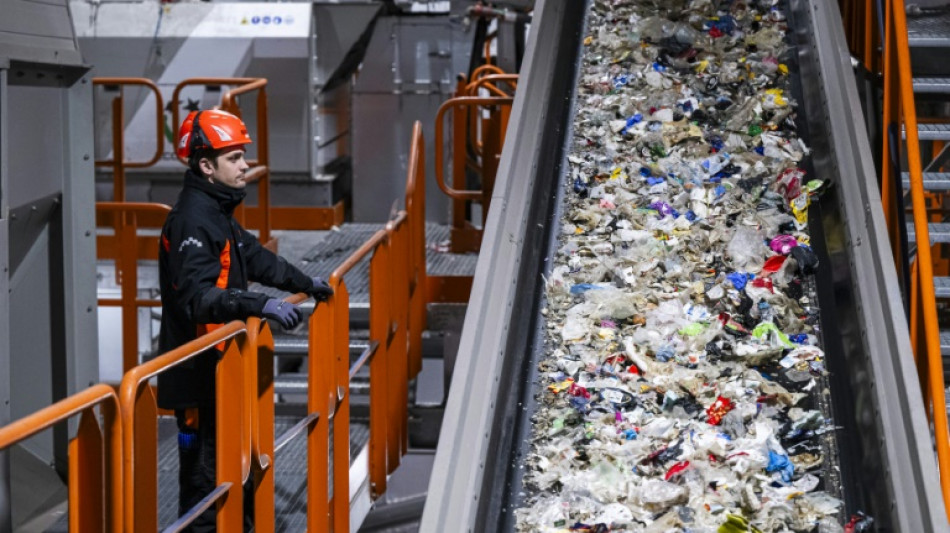
-
 Lindsey Vonn completes second Winter Olympics downhill training run
Lindsey Vonn completes second Winter Olympics downhill training run
-
Freeski star Gu survives major scare in Olympic slopestyle

-
 Iran FM looks to more nuclear talks, but warns US
Iran FM looks to more nuclear talks, but warns US
-
Hetmyer's six-hitting steers West Indies to 182-5 against Scotland

-
 After boos for Vance, IOC says it hopes for 'fair play'
After boos for Vance, IOC says it hopes for 'fair play'
-
Thousands gather as Pakistan buries victims of mosque suicide attack

-
 Lindsey Vonn completes second downhill training session
Lindsey Vonn completes second downhill training session
-
US pressing Ukraine and Russia to end war by June, Zelensky says

-
 Faheem blitz sees Pakistan avoid Netherlands shock at T20 World Cup
Faheem blitz sees Pakistan avoid Netherlands shock at T20 World Cup
-
Trump refuses to apologize for racist clip of Obamas as monkeys
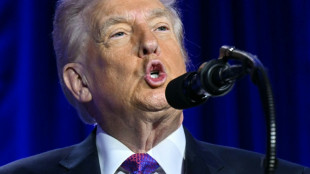
-
 Takaichi talks tough on immigration on eve of vote
Takaichi talks tough on immigration on eve of vote
-
England's Salt passed fit for T20 World Cup opener

-
 Spain, Portugal brace for fresh storm after flood deaths
Spain, Portugal brace for fresh storm after flood deaths
-
Pakistan bowl out Netherlands for 147 in T20 World Cup opener

-
 Pushed to margins, women vanish from Bangladesh's political arena
Pushed to margins, women vanish from Bangladesh's political arena
-
Crypto firm accidentally sends $40 bn in bitcoin to users

-
 Pistons end Knicks' NBA winning streak, Celtics edge Heat
Pistons end Knicks' NBA winning streak, Celtics edge Heat
-
Funerals for victims of suicide blast at Islamabad mosque that killed at least 31

-
 A tale of two villages: Cambodians lament Thailand's border gains
A tale of two villages: Cambodians lament Thailand's border gains
-
Police identify suspect in disappearance of Australian boy

-
 Cuba adopts urgent measures to address energy crisis: minister
Cuba adopts urgent measures to address energy crisis: minister
-
Not-so-American football: the Super Bowl's overseas stars

-
 Trump says US talks with Iran 'very good,' more negotiations expected
Trump says US talks with Iran 'very good,' more negotiations expected
-
Trump administration re-approves twice-banned pesticide

-
 Hisatsune leads Matsuyama at Phoenix Open as Scheffler makes cut
Hisatsune leads Matsuyama at Phoenix Open as Scheffler makes cut
-
Beyond the QBs: 5 Super Bowl players to watch

-
 Grass v artificial turf: Super Bowl players speak out
Grass v artificial turf: Super Bowl players speak out
-
Police warn Sydney protesters ahead of Israeli president's visit

-
 Bolivia wants closer US ties, without alienating China: minister
Bolivia wants closer US ties, without alienating China: minister
-
Ex-MLB outfielder Puig guilty in federal sports betting case

-
 Milan-Cortina Winter Olympics open with dazzling ceremony
Milan-Cortina Winter Olympics open with dazzling ceremony
-
China overturns death sentence for Canadian in drug case

-
 Trump reinstates commercial fishing in protected Atlantic waters
Trump reinstates commercial fishing in protected Atlantic waters
-
Man Utd can't rush manager choice: Carrick

-
 Leeds boost survival bid with win over relegation rivals Forest
Leeds boost survival bid with win over relegation rivals Forest
-
Stars, Clydesdales and an AI beef jostle for Super Bowl ad glory

-
 Dow surges above 50,000 for first time as US stocks regain mojo
Dow surges above 50,000 for first time as US stocks regain mojo
-
Freeski star Gu says injuries hit confidence as she targets Olympic treble
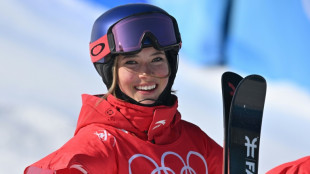
-
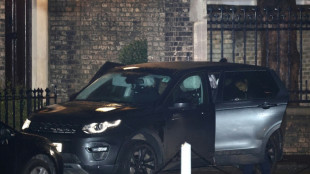 UK police search properties in Mandelson probe
UK police search properties in Mandelson probe
-
Bompastor extends contract as Chelsea Women's boss despite slump
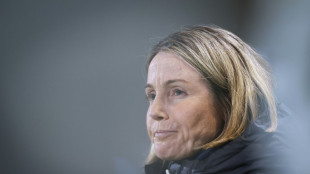
-
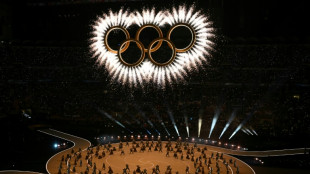 Milan-Cortina Winter Olympics open with glittering ceremony
Milan-Cortina Winter Olympics open with glittering ceremony
-
A French yoga teacher's 'hell' in a Venezuelan jail
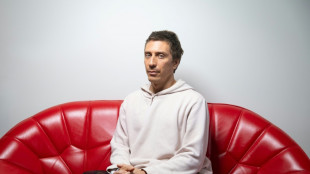
-
 England's Underhill taking nothing for granted against Wales
England's Underhill taking nothing for granted against Wales
-
Fans cheer for absent Ronaldo as Saudi row deepens

-
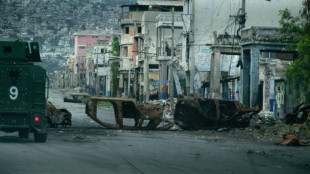 Violence-ridden Haiti in limbo as transitional council wraps up
Violence-ridden Haiti in limbo as transitional council wraps up
-
Hundreds protest in Milan ahead of Winter Olympics

-
 Suspect in murder of Colombian footballer Escobar killed in Mexico
Suspect in murder of Colombian footballer Escobar killed in Mexico
-
Colombia's Rodriguez signs with MLS Minnesota United

-
 Wainwright says England game still 'huge occasion' despite Welsh woes
Wainwright says England game still 'huge occasion' despite Welsh woes
-
WADA shrugs off USA withholding dues
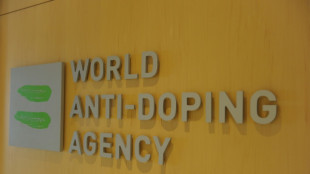

Sweden aims to boost plastic recycling with giant plant
Discarded crisp bags, ketchup bottles and Tupperware containers speed along conveyer belts at a massive high-tech sorting plant dubbed "Site Zero", which Sweden hopes will revolutionise its plastic recycling.
Infrared lights, lasers, cameras and even artificial intelligence are used to sort the piles of plastic waste, Mattias Philipsson, CEO of Swedish Plastic Recycling, a non-profit organisation owned by the plastic industry, explains as he gives a tour of the plant.
Located outside the town of Motala, some 200 kilometres (124 miles) southwest of Stockholm, the site has been in operation since late 2023 and is described by the organisation as "the world's largest and most modern facility for plastic recycling".
Capable of processing 200,000 tonnes of waste a year, the fully automated plant can isolate 12 different types of plastic, compared to only four in conventional facilities.
Its operator hopes upcoming EU legislation requiring new packaging to include a certain amount of recycled plastic will give a boost to the recycling industry.
"We receive all the collected plastic packaging which people have sorted in Swedish households," Philipsson told AFP at the site, adding that they "have the capacity to handle the equivalent of all of Sweden's plastic waste."
Thousands of plastic items make their way through an intricate maze of different machines which identify and separate the items into distinct categories, called "fractions."
On one of the conveyor belts, infrared light is used to scan the packaging as it zooms past, and a strong blast of air whooshes the pieces in different directions depending on the type of plastic.
- Room for improvement -
Among other things, the facility is able to sort out PVC and polystyrene, two fractions that have not previously been able to be reused in new products as such.
"The idea is to be part of a circular economy and to reduce the use of fossil fuels," Philipsson says.
"With our old sorting plant, over 50 percent of the plastic packaging was eventually incinerated because it couldn't be sorted. Now it's less than five percent," he adds.
The Scandinavian country is not at the top of the class when it comes to plastic recycling.
In 2022, only 35 percent of plastic waste was recycled, according to the Swedish Environmental Protection Agency (EPA), under the EU average of 40 percent.
The incineration of plastic waste, which is used to produce both heat and electricity, accounts for about seven percent of Sweden's greenhouse gas emissions, according to the agency.
"Swedes are good at recycling in general -- metals, paper and glass -- because we have been doing this for a long time and have an industry that wants the paper for example," EPA expert Asa Stenmarck told AFP.
But "when it comes to plastics we are not so good," she added.
"A lot is not even sorted, which is a big problem and this goes for both households and businesses. So we really need to work on sorting."
- More waste coming -
Recycled plastic is still struggling to be widely adopted, as it is on average 35 percent more expensive than newly produced plastic.
Stenmarck noted that some of the fractions sorted by Site Zero are still unusual on the recycling market.
"So in a sense, it's kind of brave since there probably aren't customers yet," she explained.
Stenmarck said one way of speeding up its adoption is to legislate, and noted this was underway in Europe with the new Packaging and Packaging Waste Regulation (PPWR).
The 27 EU member states agreed on March 4 that plastic packaging must contain between 10 and 35 percent recycled content, depending on whether it is used for food, by 2030.
"It will be a welcome game-changer for the market," Philipsson told AFP, adding that "the only way to achieve that is through efficient sorting."
Still, the OECD anticipates that the amount of plastic packaging will triple by 2060.
Some environmentalists argue that increased recycling does not address the root problem.
"We have the feeling that this talk of an improvement in the technical performance reinforces the idea that we can continue (making plastic), that there is nothing to worry about," Henri Bourgeois-Costa, a plastic waste expert at the Tara Ocean Foundation, told AFP.
"The challenge with these plastics is not to sort them better, to better recycle them... The challenge is to replace them and eliminate them," he added.
Other projects based on the Site Zero model are being designed elsewhere in Europe, with two in Germany and one in Norway.
D.AbuRida--SF-PST

